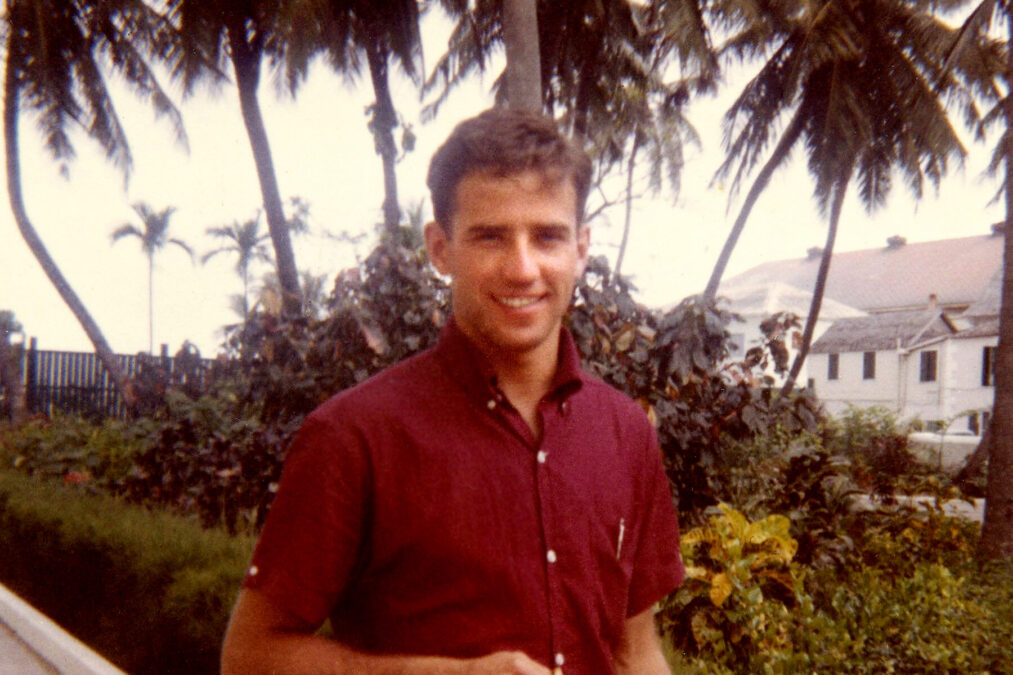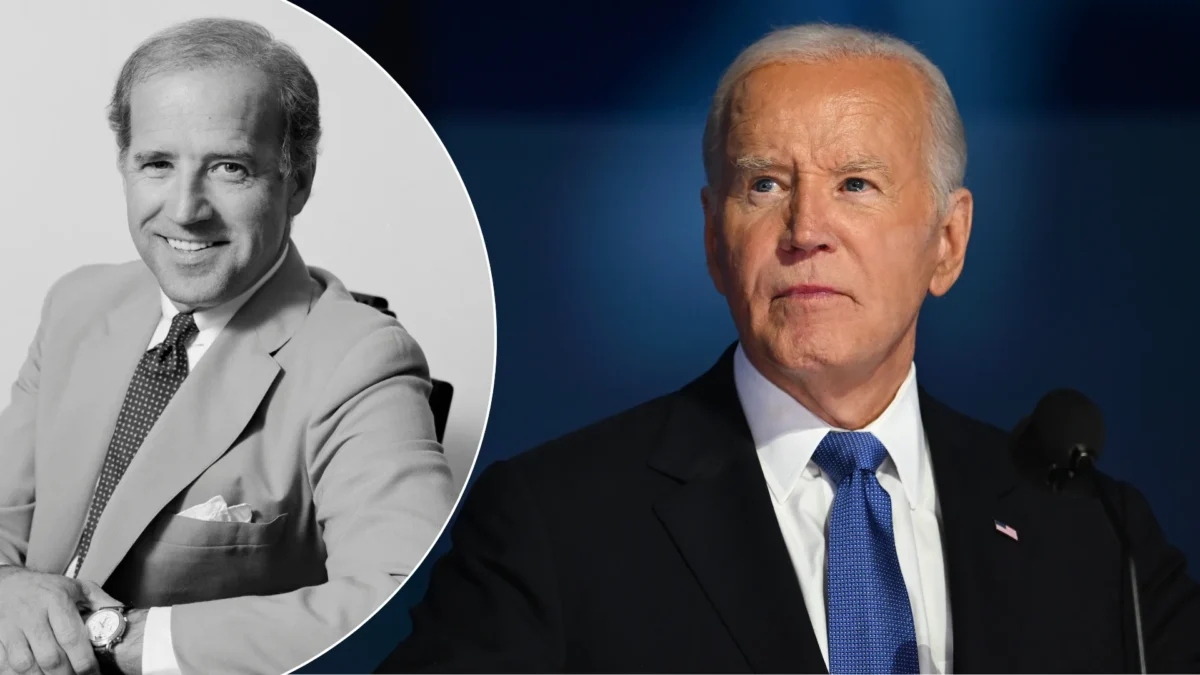Introduction
Joseph R. Joe Biden young, the 46th President of the United States, is often analyzed through the lens of his later political achievements. However, understanding Biden’s early life—his upbringing, education, and first steps in politics—reveals the roots of his empathy, resilience, and commitment to public service. This deep dive into Biden’s youth uncovers the experiences that forged a leader poised to navigate complex national and global challenges.
From his working-class roots in Scranton, Pennsylvania, to his rise as a U.S. Senator and Vice President, Biden’s journey offers lessons in perseverance, family, and the power of conviction. Let’s explore the pivotal years that defined Joe Biden before he became a household name.
Early Life: Roots of Resilience (1942–1965)
Birth and Family Background
Joe Biden was born on November 20, 1942, in Scranton, Pennsylvania, to Joseph R. Biden Sr. and Catherine Eugenia “Jean” Biden. The Biden family was deeply rooted in Catholic faith and working-class values. His father, a used car salesman, and his mother, a homemaker, instilled in Joe and his siblings a strong work ethic and sense of community.
Scranton, a city reeling from the decline of coal industry jobs, shaped Biden’s early perspective on economic struggle and the importance of education as a pathway to upward mobility.
Education: Finding His Voice
Biden’s academic journey began at St. Joseph’s Elementary School, followed by Archmere Academy, a Jesuit high school in Delaware. Though he struggled with stuttering and self-doubt, school became a platform for his burgeoning interest in politics. He participated in debates, a stark contrast to his shy demeanor outside the classroom.
In 1965, Biden graduated from the University of Delaware with a double major in history and political science. Notably, he was also a standout athlete, playing cornet in the marching band and lettering in football—a testament to his determination to overcome personal challenges.
That same year, he enrolled at Syracuse University College of Law. However, tragedy struck just months later. In December 1965, a car accident claimed the lives of Biden’s wife, Neilia Hunter Biden, and their 13-month-old daughter, Naomi. Biden’s older brother, Francis, was also critically injured. Though Biden himself was unharmed, the loss devastated him. He nearly withdrew from law school but stayed to honor his family’s memory.
Early Political Career: First Steps on the National Stage (1966–1972)

Election to New Castle County Council (1970)
At 27 years old, Biden’s political career began with an unlikely victory. In 1970, he ran for the New Castle County Council in Delaware, a position he won with just 4,121 votes. His campaign focused on combating corruption, improving public schools, and expanding healthcare—issues that would define his later career.
Despite being the youngest and least experienced candidate, Biden’s charisma and grassroots approach resonated with voters. His time on the council laid the groundwork for his reputation as a pragmatic problem-solver.
First Senate Campaign and Tragedy Strikes Again
Driven by ambition, Joe Biden young launched a bid for the U.S. Senate in 1972 at age 29. However, just weeks before the Democratic primary, another catastrophe occurred. While campaigning with his wife, Jill (then Jacobs), and their son, Hunter, their car was struck by a truck. Jill was severely injured, and the couple feared she would not survive. Biden temporarily withdrew from the race to care for his family but returned to win the primary.
In the general election, Biden faced veteran Republican Congressman Caleb Boggs. Despite a spirited campaign, he lost by a narrow margin. However, the experience honed his political acumen and underscored his dedication to public service.
Triumph After Tragedy: Senate Election of 1972
Though Biden lost the 1972 Senate race, his resilience caught the attention of national Democrats. When Senator Clayton W. Collete died in 1972, Biden was tapped as the party’s nominee to replace him. On November 7, 1972, Joe Biden was elected to the U.S. Senate at age 29—making him the fifth-youngest senator in U.S. history at the time.
Why His Senate Election Mattered
Biden’s victory was historic not only for his age but also for his focus on middle-class issues:
- Education: Advocating for Pell Grants and student loans.
- Transportation: Securing funds for Delaware’s road infrastructure.
- Justice: Early support for civil rights and criminal justice reform.
His youth allowed him to connect with younger voters while collaborating across the aisle. Senator Richard Nixon (no relation to the president) praised Biden’s “extraordinary maturity,” foreshadowing his bipartisan approach.
Personal Life and Growth in the Senate
Marriage to Jill Biden and Family Rebuilding
In 1977, Biden married Jill Jacobs, a teacher he met during his recovery from his first family’s tragedy. The couple later adopted three children—Beau, Hunter, and Naomi—showcasing Biden’s commitment to family despite personal loss.
Jill Biden became a cornerstone of his career, often serving as his public face during campaigns. Her influence encouraged Joe to address issues like education and military families, themes that grew into policy priorities.
Key Legislative Efforts
During his first decades in the Senate, Biden chaired the Judiciary Committee (1987–1995), where he led debates on:
- Crime Bills: Authoring the 1994 Violence Against Women Act.
- Immigration: Advocating for pathways to citizenship.
- Foreign Policy: Overseeing nominations for judges and ambassadors.
His work on the Foreign Relations Committee later positioned him as an expert on global affairs, a role he’d leverage as Vice President.
The Biden Doctrine: Empathy in Action
Biden’s early career was defined by a “problem-solver” ethos, blending progressive ideals with pragmatic compromise. Three principles emerged:
- Humanizing Policy: He linked legislation to personal stories, whether discussing student loans or crime victims’ rights.
- Bipartisan Collaboration: Despite partisan divides, Biden built relationships with Republicans, a skill critical during his Vice Presidency.
- Focus on the Middle Class: From fighting for living wages to supporting small businesses, his policies aimed to elevate working families.
Legacy of Biden’s Youthful Years
Biden’s early life and career laid the foundation for his political identity:
- Resilience: Overcoming personal tragedy and political loss taught him to persist.
- Empathy: His experiences with economic hardship informed his “battle for the soul of America” messaging.
- Policy Depth: Early focus areas like education and criminal justice became cornerstones of the Obama-Biden and Biden-Harris administrations.
Conclusion: From Young Senator to President
Joe Biden’s youth was not merely a prelude to his presidential career but a critical phase that shaped his leadership style. The challenges he faced—grief, political defeat, and public scrutiny—forged a leader who approached governance with unparalleled empathy and determination.
For those studying American politics or leadership, Biden’s early years offer timeless lessons:
- Adversity builds character.
- Public service requires humility and courage.
- Family and community are the bedrocks of societal progress.
As Biden continues to make history as President, reflecting on his journey from a young Delaware senator to the White House underscores that leadership is not born in offices of power but cultivated through lifelong dedication to others.



